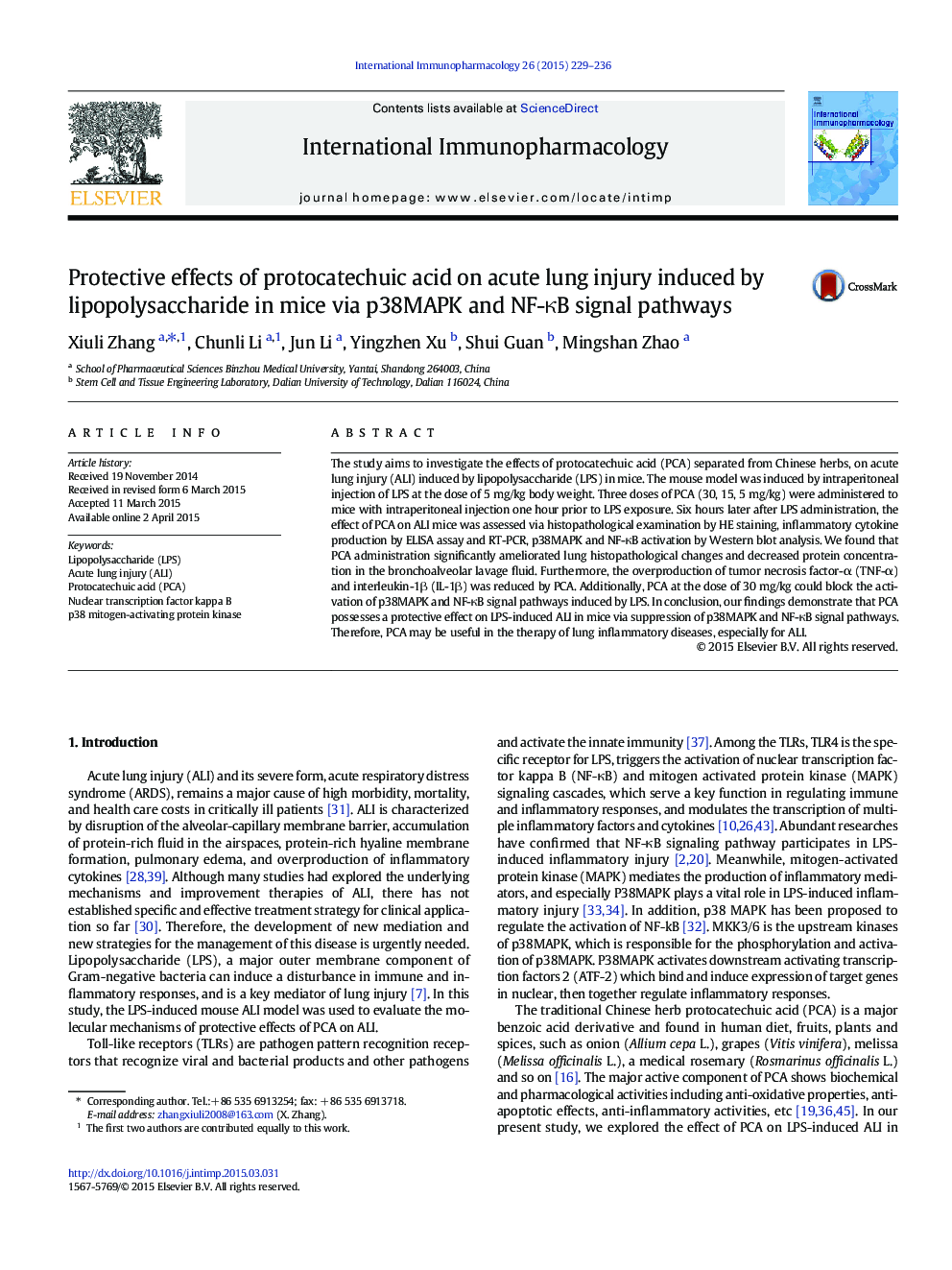| Article ID | Journal | Published Year | Pages | File Type |
|---|---|---|---|---|
| 2540762 | International Immunopharmacology | 2015 | 8 Pages |
•PCA ameliorates histopathological changes in the mice lung challenged with LPS.•PCA decreases protein concentration in BALF of LPS-induced ALI mice.•PCA inhibits cytokine production in BALF and blood of LPS-induced ALI mice.•PCA inactivates p38MAPK signaling pathways in the lung of LPS-induced ALI mice.•PCA inhibits NF-κB activation in the lung of LPS-induced ALI mice.
The study aims to investigate the effects of protocatechuic acid (PCA) separated from Chinese herbs, on acute lung injury (ALI) induced by lipopolysaccharide (LPS) in mice. The mouse model was induced by intraperitoneal injection of LPS at the dose of 5 mg/kg body weight. Three doses of PCA (30, 15, 5 mg/kg) were administered to mice with intraperitoneal injection one hour prior to LPS exposure. Six hours later after LPS administration, the effect of PCA on ALI mice was assessed via histopathological examination by HE staining, inflammatory cytokine production by ELISA assay and RT-PCR, p38MAPK and NF-κB activation by Western blot analysis. We found that PCA administration significantly ameliorated lung histopathological changes and decreased protein concentration in the bronchoalveolar lavage fluid. Furthermore, the overproduction of tumor necrosis factor-α (TNF-α) and interleukin-1β (IL-1β) was reduced by PCA. Additionally, PCA at the dose of 30 mg/kg could block the activation of p38MAPK and NF-κB signal pathways induced by LPS. In conclusion, our findings demonstrate that PCA possesses a protective effect on LPS-induced ALI in mice via suppression of p38MAPK and NF-κB signal pathways. Therefore, PCA may be useful in the therapy of lung inflammatory diseases, especially for ALI.
